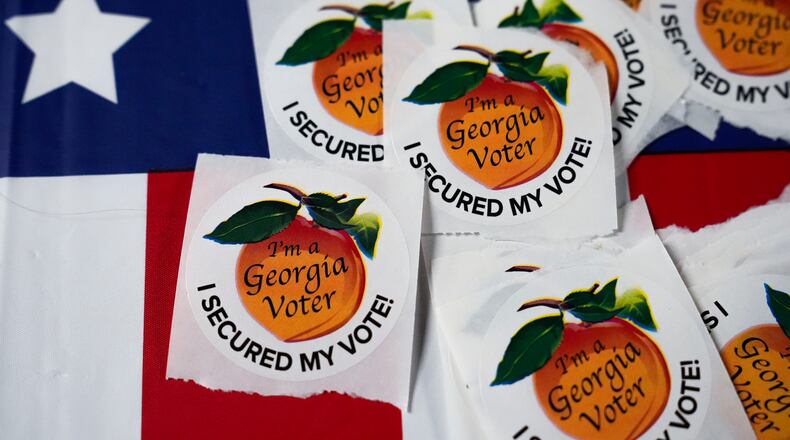Elections in Georgia are more secure now than they have ever been, and it’s our job is to keep it that way.
Democracy in action means giving every legal voter practical, secure ways to participate. That includes early voting and absentee ballots.
In recent weeks, both the Georgia Republican Party and their allies on the State Election Board have floated ending both. At a recent hearing, the board discussed and even voted on recommendations to dramatically curtail absentee voting in the state.
Not only does the board lack the legal authority to implement these changes, but it would also be wildly unpopular with Georgia voters. Put simply: it’s the wrong direction for our state.
Politicians should not tinker with elections for partisan advantage
Credit: Handout
Credit: Handout
These political scare tactics would jeopardize how 4 million Georgians cast ballots last year and threaten hard-won confidence in our elections.
Heading into 2026, leaders should be building trust, not tearing down what works.
A new Atlanta Journal-Constitution poll underscores just how fragile voter confidence can be when political maneuvering gets in the way. More than one-third of Democratic voters in Georgia now say they are “not so confident” or “not at all confident” that next year’s primary elections will be fair and accurate — more than double from this time last year.
That’s alarming, and it goes to show that when elected officials and political operatives try to tinker with Georgia’s election system for partisan advantage, trust falls across the board.
Contrast that with findings from a May 2025 Cygnal survey showing that nearly 3 in 4 Georgia voters said they trust the state’s elections — and almost half rated that trust between 8 and 10 out of 10, up 12 points since fall 2024.
Credit: Handout
Credit: Handout
A strong 62% of respondents reported voting early last year. These are regular Georgians exercising their constitutional rights.
Eliminating early voting would punish working parents juggling shifts, seniors with mobility challenges, caregivers and voters with complex schedules.
Absentee voting is not a partisan tool; it’s a lifeline for service members overseas, the ill or disabled and family caregivers who cannot get to a polling place.
Secure access and strong integrity coexist in Georgia.
Focus on Georgians’ top issues like affordability
Credit: Michael A. Schwarz
Credit: Michael A. Schwarz
Georgia’s 2021 election reform, Senate Bill 202, strengthened voter ID and other integrity measures.
Overall awareness of the law is now 82% (plus or minus 5), and support is up 10 points since September 2024. Among supporters, voter ID remains the most popular element. The takeaway is simple: Georgians want elections that are both secure and accessible. We don’t need to choose and we shouldn’t.
Voters aren’t asking to relitigate 2020. “Election integrity” barely registers as a top issue today. Instead, Georgians are focused on affordability, inflation and public safety. Leaders in both parties should keep their eyes on those priorities while preparing for a safe and secure election next year. Any discussion from state officials or political operatives to undo the incredible progress that has been made is a distraction and a disservice to all Georgians.
Georgia has become a national model where it’s easy to vote and hard to cheat. We should preserve and improve early voting and absentee options, invest in poll worker training and technology upkeep, and communicate proactively about how the system works. Growing participation and confidence requires reaffirming a commitment to facts, not fear-mongering.
Our continuing experiment in self-government works best when all Georgians can be heard. Leadership means saying no to short-term politics and yes to the trusted, secure options that help citizens vote. That’s how we protect confidence in our elections and our future.
Former Gov. Roy Barnes, former U.S. Sen. Saxby Chambliss and former Atlanta Mayor Shirley Franklin are part of the Democracy Defense Project - Georgia. Barnes served as a Democrat, Chambliss as a Republican and while the mayor’s post is nonpartisan, Franklin is a Democrat. The Democracy Defense Project is a bipartisan initiative led by former elected officials and civic leaders across Arizona, Georgia, Michigan, Nevada, New Hampshire, Ohio, Pennsylvania and Wisconsin to defend the transparency, safety, security and validity of U.S. elections.
About the Author
Keep Reading
The Latest
Featured





